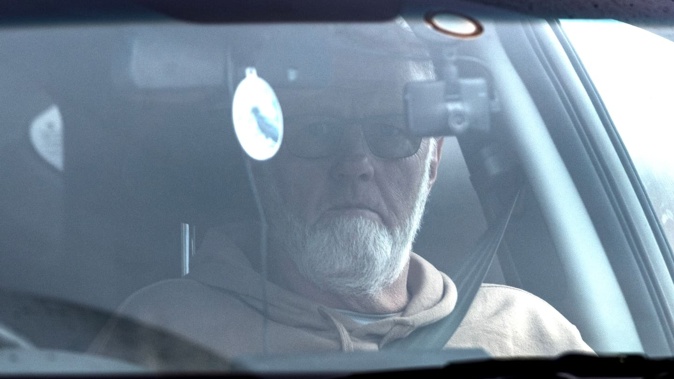

The Parole Board will today be updated on how convicted murderer Mark Lundy is coping with life outside prison - but the public will have to wait to hear if he’s complying with the conditions of his release.
Mark Lundy was released from prison in May after more than 23 years behind bars for murdering his wife Christine and his 7-year-old daughter Amber. The pair were found dead in their Palmerston North home after being attacked with what is believed to have been an axe or tomahawk.
Lundy, 66, has always maintained that someone else killed his family.
He took his fight all the way to the Privy Council, which quashed the guilty verdict in 2013, only for him to be found guilty again in 2015 on retrial and sent back to prison.

Mark Lundy was released from prison in May. Composite photo / Mark Mitchell
Lundy has been living in the community for six months now, but will be subject to lifetime release conditions and can be recalled to prison if he breaches any of those.
One condition was to not speak to the media; an order only ever imposed on a few high-profile offenders.
Today, he appears before the New Zealand Parole Board for an update on how he’s been handling life outside the wire.
Media have been denied access to the progress hearing.
“The principal purpose of the hearing is to receive Mr Lundy’s Probation Officer’s report on his compliance with his release conditions,” panel convenor Neville Trendle said.
It is standard for media to have to apply in advance to attend Parole Board hearings and up to the panel to approve or decline.
Trendle noted past media interest in the case and attendance at previous parole hearings.
“I also accept the “open justice” principle is of relevance and importance to Board hearings."
However, he said media presence created an “unfairness” for Lundy, alongside the media gag order condition.
“Linked to that is the importance to the Board of mitigating distractions to his reintegration to the community and to provide an element of privacy to his community and professional supports to facilitate his return,” Trendle said.
Lundy’s counsel made submissions against media attendance, claiming his ability to speak and respond to questions would be “chilled” by media presence.
Trendle said he disagreed as media attendance had not been an issue atLundy’s previous three appearances before the board.
However, there are multiple registered victims of Lundy’s offending who expressed a “clear preference” that media be excluded.
“I have endeavoured to balance the various considerations that arise in this case and have concluded that I should not approve the applications.”
A written summary of today’s hearing will be provided to media in the next few weeks.
Jeremy Wilkinson is an Open Justice reporter based in Manawatū, covering courts and justice issues with an interest in tribunals. He has been a journalist for nearly a decade and has worked for NZME since 2022.
Take your Radio, Podcasts and Music with you










